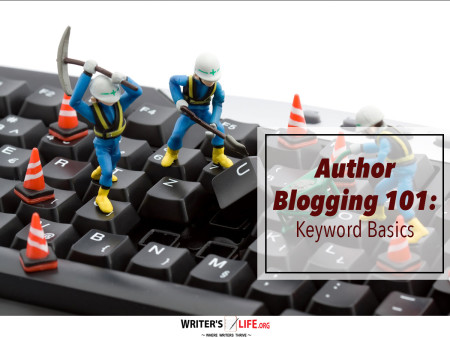- How To Tackle Jealousy In Creative Writing
- Common Submission Mistakes
- How To Stop Your Blog Becoming Boring
- The One Thing Every Successful Writer Has In Common
- How To Make Yourself Aware Of Publishing Scams
- Why Almost ALL Writers Make These Grammar Mistakes At Some Point
- 5 Tips For Authors On How To Deal With Rejection
- Top Mistakes to Avoid When Writing a Novel
- How to Avoid Common New Writer Mistakes
- 10 Mistakes New Fiction Writers Make
10 Legal Steps to Start Your Own Publishing Company

Starting a publishing company might feel like navigating a literary labyrinth, but with the right legal steps in place, it becomes a clear path to success for bibliophiles and entrepreneurs alike. Whether you're aspiring to launch a publishing company to bring fresh voices to light or to establish a niche firm focusing on specific genres, understanding the necessary legal steps is crucial.
Understanding the Legal Framework for Starting a Publishing Business
Before you dive into the world of books and authorship, it's essential to understand the legal needs for publishers. From choosing the right business structure to understanding copyright laws, laying a solid legal foundation will protect your business in the long haul. Have you thought about what type of entity your publishing company will be? Options include sole proprietorship, partnership, or a limited liability company (LLC), each with distinct implications.
Establishing your publishing company within a legal framework doesn’t just protect your assets; it also sets a professional tone. It’s the first significant step in gaining the trust of authors, marketers, and investors. As you plan, keep in mind that the laws governing publishing vary from state to state, so adjust accordingly.
Sourcing Legal Steps for Launching a Publishing Company
When it comes to legal steps for publishing, registration is non-negotiable. A crucial move is registering your company name and trademark, ensuring it's unique and not infringing on existing marks. This involves performing a comprehensive name search and filing with the appropriate state or national bodies.
Next, acquiring an Employer Identification Number (EIN) is vital if you plan to hire employees or operate as an LLC. This federal identifier is necessary for tax purposes, and for opening a business bank account, ensuring your financial dealings are in line with legal standards. You can apply for an EIN online through the Internal Revenue Service (IRS).
Legal Checklist for Publishing: Contracts & Copyrights
A critical component of your publishing business setup is developing a robust contract template for your authors. This should clearly outline rights, responsibilities, and royalties. Navigating contracts without expertise can lead to pitfalls, so consulting a legal expert here can save future headaches.
When you start a publishing company, understanding copyright law can't be overstated. Copyright exclusively governs who can reproduce, distribute, or display the book. It ensures that the rights of your authors are protected and allows you to manage and safeguard these rights effectively. Familiarize yourself with how to register copyrights and handle potential infringements effectively.
- Choose a suitable business structure
- Register your company and trademarks
- Obtain an EIN for tax purposes
- Develop comprehensive contracts for authors
- Understand and apply copyright laws
Open Your Publishing Company: Key Financial Considerations
Opening a publishing company is more than just about legalities; financial health is equally critical. Apart from keeping up with taxes using your EIN, maintaining transparent accounts is vital. This involves setting up a dedicated business bank account and perhaps utilizing software tools to streamline accounting processes.
Consider consulting with a financial advisor who understands the nuances of the publishing industry. Budgeting for potential legal and operational hurdles ensures your company starts on a firm financial footing. It also helps in building strong relationships with investors and stakeholders.
Want to promote your book after it’s published? Check out our Book Marketing Articles.
Insurance and Liability in Establishing a Publishing Company
Insurance is a part of the invisible backbone of establishing your publishing company. It protects your company from unforeseen events and lawsuits. Professional liability insurance, for instance, shields your company against claims of negligence or errors in publishing.
While it might feel like just another cost, insurance is a safeguard that creates peace of mind. It's like having an umbrella on a cloudy day—better safe than sorry. Determine what type of business insurance is required according to the scale of your operations and where you plan to function.
Licensing and Permits for Your Publishing Business Setup
Depending on your location, licenses and permits may be necessary for your publishing business setup. Check both federal and state regulations thoroughly. General business licenses, seller’s permits, or even home occupancy permits might be required, depending on where you're setting up shop.
Think of obtaining permits as obtaining your license to dream. It breaks down barriers and prevents hefty fines, allowing you to operate freely and legally. Keep track of renewal dates and stay informed about new regulations.
"Laying a strong legal foundation for your publishing business doesn't just provide protection; it unlocks doors to endless possibilities in the world of words and storytelling."
Frequently Asked Questions About Start Publishing Company
Q: Do I need to trademark my publishing company name?
A: Yes, trademarking your name protects your brand identity and prevents others from using it without permission.
Q: How important is insurance when starting a publishing company?
A: Insurance is crucial as it helps protect against potential legal claims and unforeseen business disruptions.
Q: What type of business structure is best for a publishing company?
A: LLCs are popular due to limited liability protection and flexibility, but the right structure depends on your specific needs and goals.
If you're serious about growing your author career, don't miss out on these free tools and templates built specifically for writers. Access all 7 free resources here.



























